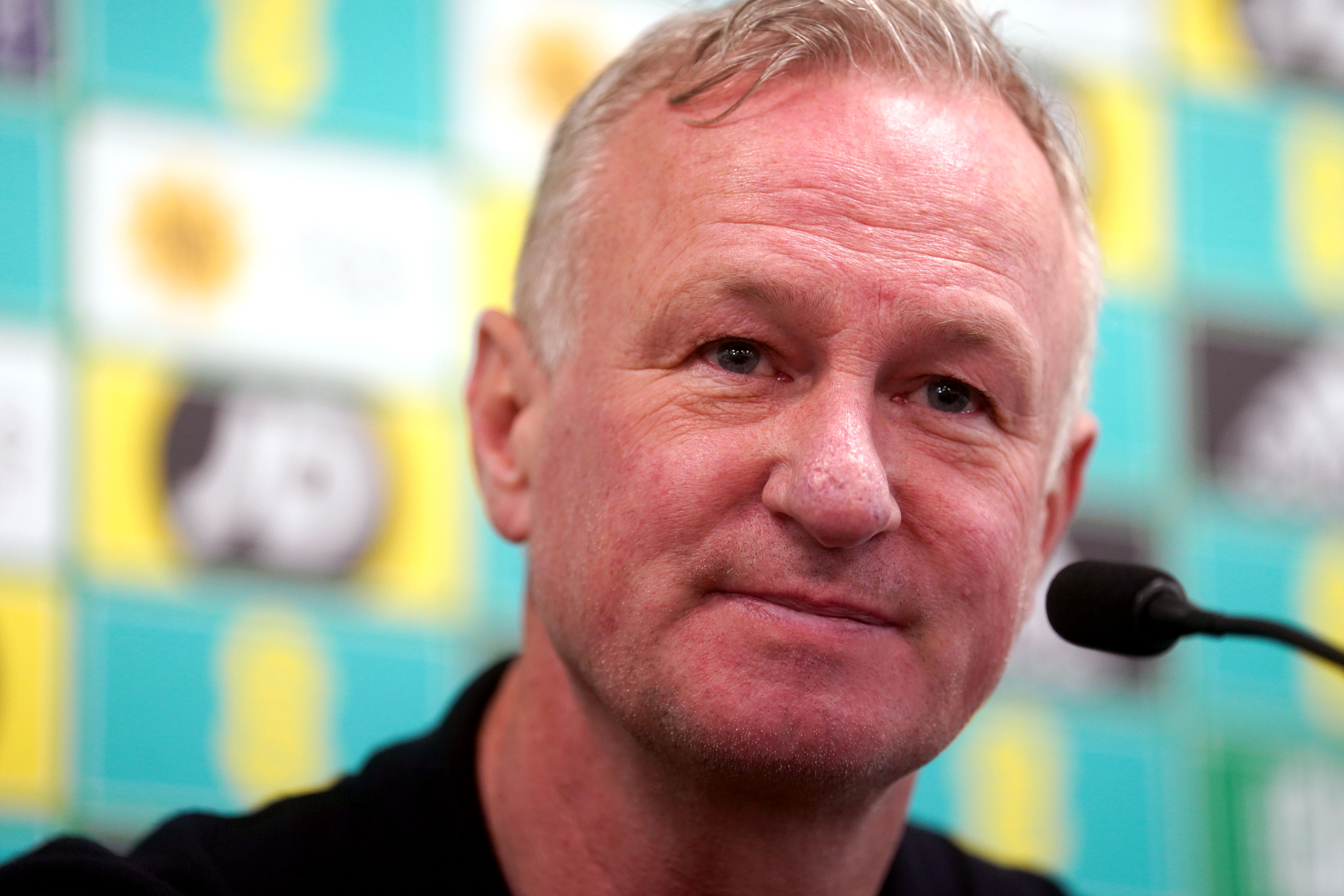Michael O’Neill rejected Championship jobs before making Northern Ireland return
The 53-year-old was sacked by Stoke in August

Your support helps us to tell the story
From reproductive rights to climate change to Big Tech, The Independent is on the ground when the story is developing. Whether it's investigating the financials of Elon Musk's pro-Trump PAC or producing our latest documentary, 'The A Word', which shines a light on the American women fighting for reproductive rights, we know how important it is to parse out the facts from the messaging.
At such a critical moment in US history, we need reporters on the ground. Your donation allows us to keep sending journalists to speak to both sides of the story.
The Independent is trusted by Americans across the entire political spectrum. And unlike many other quality news outlets, we choose not to lock Americans out of our reporting and analysis with paywalls. We believe quality journalism should be available to everyone, paid for by those who can afford it.
Your support makes all the difference.Michael O’Neill has revealed he turned down opportunities to manage again in the Sky Bet Championship before deciding he could not pass up the chance to return as Northern Ireland boss.
The 53-year-old has signed a five-and-a-half year deal to return to the job he left in April 2020 after becoming Stoke boss.
O’Neill had been a free agent after being sacked by the Potters in August, and was the Irish FA’s number one choice once the decision was taken to dispense with Ian Baraclough in November.
“There have obviously been opportunities that have come up in the Championship,” O’Neill said. “But if I’m honest, I didn’t put myself in a position where I wanted to jump straight back into a job.
“I wanted to take time and think about what was next. Think about a club situation, an international job or something abroad, I thought about that..
“When the timing and vacancy arose here, then I just felt it was the right thing to do.”
O’Neill is now targeting a repeat of his greatest achievement in his previous eight-year spell in charge – which came when he ended a 30-year wait to play at a major tournament, reaching the last 16 at Euro 2016.
When the timing and vacancy arose here, then I just felt it was the right thing to do.
A favourable Euro 2024 qualifying draw which has paired Northern Ireland with Denmark, Finland, Slovenia, Kazakhstan and San Marino perhaps offers an opportunity to do that quickly, but O’Neill said the draw was not a factor in his decision to return.
“I wouldn’t say it was a lure because if the job had been offered to me and we’d been in a different group, I’d still have taken the job,” he said.
“It wasn’t a lure in that sense but I was glad we weren’t in a different group.
“But it’s not just about this next campaign, you have to look beyond that as well. It wasn’t just a case of saying the draw was kind and we can qualify.
“It was more about the opportunity to build something again.”
In his press conference on Wednesday O’Neill had described his move into club football as an “itch I had to scratch” but he is looking forward to the different relationship between manager and players in international football.
“I always said to the players at international level, ‘The worst thing I can do as manager is not pick you for the squad, the second worse thing I can do is pick you for the squad and not put you on the pitch. If you can live with that then you should see me as someone who supports you in your career’.
“It’s important for me that I can help the players. It’s not in my interests to have players who aren’t playing and they maybe need you a bit more.”
O’Neill pointed to how the late Billy Bingham had helped him during his own playing days, making phone calls to try to find him a new club when he had been dropped at Dundee United.
“All of those things are done to try to help the players,” O’Neill added. “I need them. Club football is different. I was in a club who were having to make huge cut-backs financially and we reduced the wage bill by almost 50 per cent, so you’re delivering bad news a lot of the time which is never easy.
“Players don’t like bad news, especially if it’s of a financial nature and that makes the relationship more difficult.”
Join our commenting forum
Join thought-provoking conversations, follow other Independent readers and see their replies
Comments